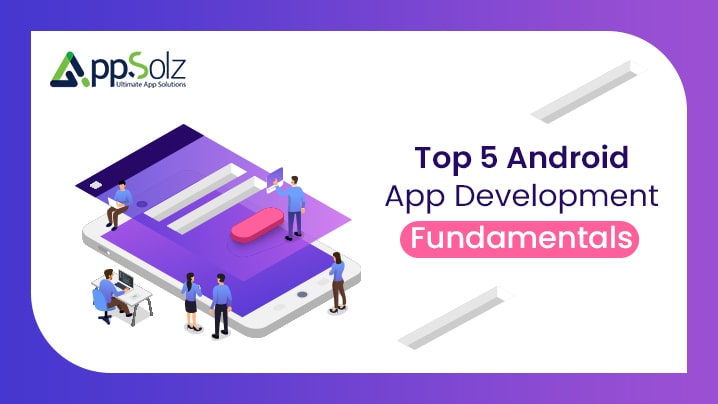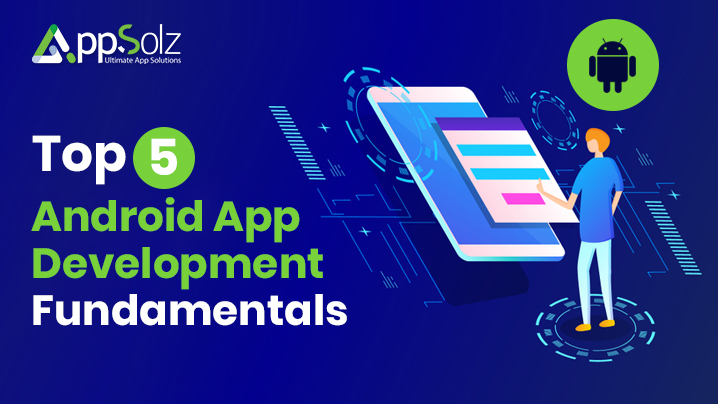As a developer working with an Android app development company in India, you must understand the fundamental building blocks of successful Android app development. This blog post will explore the top 5 Android app development fundamentals, including tools like Android SDK APIs, design principles, testing, and debugging. By mastering these fundamentals, you can create high-quality and user-friendly Android apps that meet the needs of your clients and users.
Android SDK APIs
Android SDK APIs are a key tool for Android app development, providing developers with the tools and frameworks to create engaging, feature-rich applications. It includes many features like libraries for creating Android user interfaces, data storage options, and access to hardware components such as location services. Additionally, it provides support for various Android versions and devices.
By taking advantage of the features already built into the Android SDK APIs, developers can make apps quickly and easily. As an Android app development company or individual developer based in India, you can use this huge library of resources to make apps that work well on many different devices and platforms.
Design Principles of an Android App
Android app development is rapidly becoming one of the most popular technologies for businesses. With its increasing popularity, certain design principles must be followed to ensure a successful Android app. These design principles are essential for any Android app development company that wants to create a high-quality, user-friendly product. The first principle of Android app design is to focus on usability and user experience. This means creating an intuitive interface that is easy to use with features tailored to your users’ preferences. Additionally, it is essential to keep the navigation simple so users can find what they need quickly and easily.
The second principle of Android app design is scalability. A practical Android application should be designed to scale up or down depending on its usage needs, ensuring optimal performance no matter how much usage increases over time.

User Experience of the Android App
With the ever-increasing demand for Android app development in India, it is important to ensure that fundamental elements are in place to create a great UX. Great UX leads to higher customer satisfaction, increased engagement, and better reviews.
Firstly, designing a neat and efficient interface is key; this should be done keeping the target audience in mind. It should also include features like intuitive navigation and attractive visuals to make it more engaging and interactive. Second, developers need to improve the app’s performance by making it load faster and avoiding animations or transitions that take too long.
Performance
The first strategy for improving Android app performance is ensuring the code is optimized correctly. This means checking for any redundant or unnecessary code that may impact your app’s speed. Also, it is important to test your app often on different devices so you can see where it might need to be improved before you release it to users.

Testing and debugging the new Android app developed
For any app development project to be successful, it is essential to test and debug the Android app before its deployment. This process will ensure that the app meets its intended goals and performs optimally once it is released. Testing and debugging are paramount for developers working with an Android app development company, as they provide a way to identify bugs or errors within their program.
Testing involves running simulations of potential scenarios when users interact with the application. The developer can ascertain whether all program parts are working correctly and coordinated. On the other hand, debugging involves locating any issues that could arise during testing, such as syntax errors or crashes in code, so that they can be addressed before deployment. It is also important to use automated tools and techniques while testing and debugging, as they can help speed up the process by finding problems faster than manual methods alone.
Conclusion
To sum it up, the top 5 Android app development fundamentals discussed in this blog post—Android SDK APIs, design principles, user experience, performance, and testing, and debugging—are essential for any developer looking to create high-quality Android apps. By mastering these fundamentals and staying up to date on the latest trends and best practices, you can provide top-notch Android app development services to your clients and users. Remember, the key to success in Android app development is a strong foundation in the fundamentals, so be sure to continue learning and growing as a developer.


 March 20, 2023
March 20, 2023

